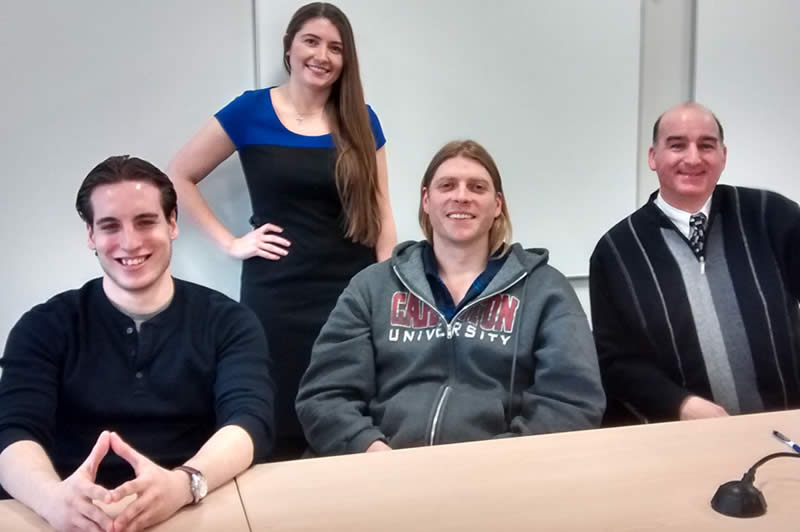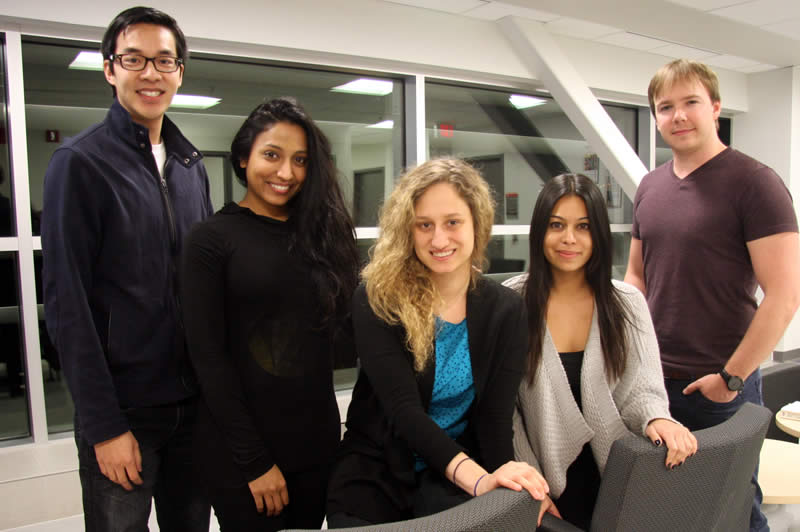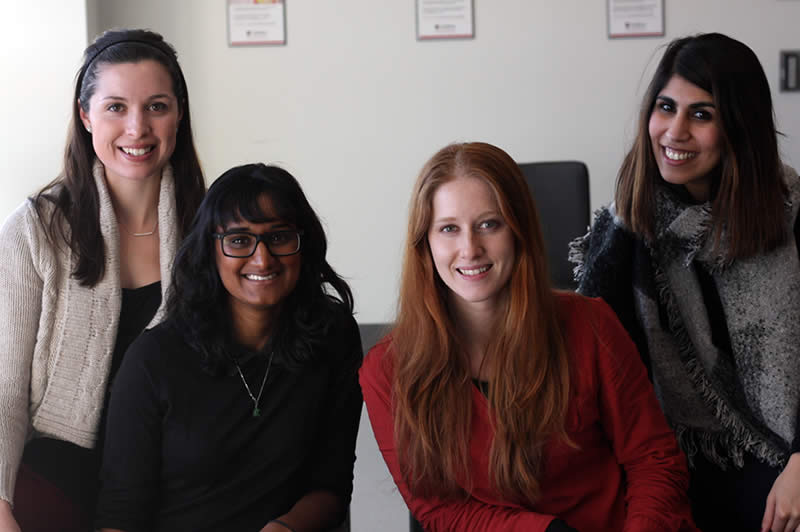From e-cigarettes and vaccinations to the quality of health care in rural communities, Carleton University graduate students are tackling some timely issues with a wide range of research.
Carleton’s Health: Science, Technology and Policy (HSTP) program prides itself on giving graduate students an opportunity to conduct major research projects during their second year that will help provide solutions to pressing current health problems. As the students come from a variety of backgrounds, they take an interdisciplinary problem-solving approach and often work with community groups, allowing them to tackle these real-life issues head on.
One group of master’s students is researching whether e-cigarettes pose health problems. With equipment borrowed from Health Canada, the students are looking at how e-cigarette exhaled vapour affects indoor air quality.
“Our review of the literature indicates that there are several pollutants that are generated by use of e-cigarettes and which could have the potential to affect human health,” says Louis Watson, one of the group members.

(L to R) E-cigarette researchers: Anthony Maki, Louis Watson, Chris Scherf and Karena Volesky (standing)
As well, the group is assessing awareness, prevalence and perceptions of e-cigarettes.
“Improving our understanding of why, how and under what conditions e-cigarettes are being utilized is helpful, since the safety of e-cigarettes has not been fully assessed,’’ says Watson. “The benefits of e-cigarettes for smoking cessation have not been well established and the prevalence of dual use [regular cigarettes and e-cigarettes] is still unclear.”
Another group of students in the HSTP program is researching why people are hesitant to get themselves or their children vaccinated.
Says group member Kevin Ho: “Current efforts to increase vaccination rates usually involve giving out the facts and debunking myths, but that isn’t working as well as we’d like.”
Using the seasonal flu vaccine as a model, the group is trying to find other non-conventional ways to get the word out.

(L to R) Vaccine hesitancy student researchers: Kevin Ho, Ramona Alwis, Nina Azoug-Boneault, Mandip Maheru, and Alex Maisonneuve
Working with administrative staff and volunteers from the Almonte General Hospital, located in the municipality of Mississippi Mills, two other groups are researching projects related to health care in rural communities.
One group is looking at the key roles informal caregivers play in assisting parents, aging relatives and friends. The group is hoping to identify the needs of these caregivers in rural areas while exploring how they access resources available to assist them.
“Often female and of advanced age themselves, these volunteers provide necessary support for an aging loved one, whether that means driving to appointments, helping dole out medications or assisting with tasks of daily life.” says grad student Deepika Sriram. “Without these individuals, the strain on an already burdened health care system increases.”

Student researchers in the rural health care project (L to R): Jessica Chippior, Deepika Sriram, Lisa Carroll, and Shazya Karmali
Other students are investigating a possible relationship between the social identity of care providers and the social engagement of residents.
After reviewing current literature, the student researchers found that relevant research has largely focused on large, urban facilities. So far, the group’s preliminary research shows that there is a research gap in the area of long-term care for rural environments.
The group is hoping their project will make a significant contribution to Almonte General Hospital’s Quality Improvement Plan.
“If we are successful in finding a relationship between the social identity of staff/volunteers and the social engagement of residents, this information may provide staff and volunteers with an appreciation of their role as active participants in creating a community-fostering long-term care environment,” says student Rima Kandar.


